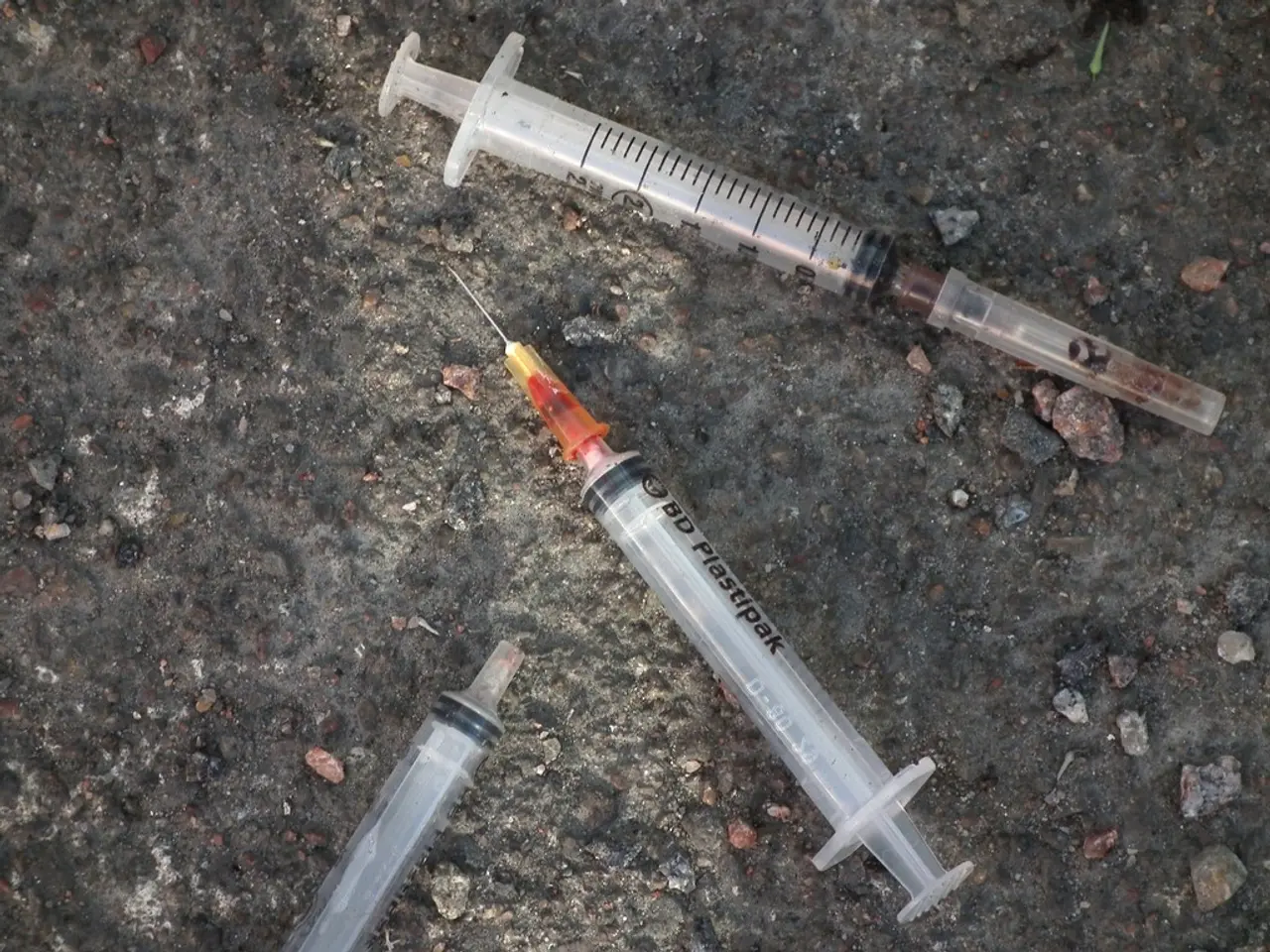Next-generation vaccines could potentially be administered through dental floss, eliminating the need for needles.
In a groundbreaking development, scientists are exploring the use of dental floss as a potential vaccine delivery method, with promising results in animal studies. The research, published in the journal Nature Biomedical Engineering, suggests that vaccine-coated dental floss could offer better protection against respiratory viruses by inducing strong mucosal and systemic immunity [1][2][3][5].
In mouse models, vaccine-coated dental floss applied to the gums successfully stimulated robust immune responses. This innovative approach led to the production of both systemic antibodies and mucosal antibodies on surfaces like the nose and lungs, which are primary pathogen entry points [1][2][3][5]. This dual immune activation could offer better protection against respiratory viruses compared to traditional injection vaccines, which mainly stimulate systemic immunity.
The floss vaccination also induced long-term immune memory as evidenced by antibody presence in bone marrow and increased T cells in lungs and spleen, suggesting durable protection comparable or potentially superior in some aspects to injection vaccines [3][5].
The mechanism involves vaccine entry through the junctional epithelium (tissue between tooth and gum), which is permeable and facilitates uptake of vaccine molecules to stimulate immune cells in mucosal tissues [1][4].
A small human feasibility study showed that floss coated with a dye could deliver substances to the gum tissue about 60% of the time, demonstrating physical viability but highlighting that further refinement is needed before effective vaccine delivery can be guaranteed in humans [3][5].
While the dental floss vaccination is highly effective in animals and theoretically could offer superior antibody protection on mucosal surfaces, direct comparative data to traditional injections in humans are not yet available [2].
One key advantage of the dental floss vaccine is that it does not carry the risk of the vaccine reaching the brain, unlike nasal delivery methods [6]. This improves the body's ability to prevent infection, as there is an additional line of antibody defense before a pathogen enters the body.
However, the impact of gingival tissue infection on vaccination is unclear, requiring additional studies to answer this question [7]. It was about as effective as a nasal spray delivery method [8]. Participants were able to deposit around 60% of the dye in the gum pocket using floss picks, indicating the potential effectiveness of vaccine-coated floss picks [3][5].
In conclusion, vaccine delivery via dental floss is an innovative and effective needle-free method in animal models, showing promise especially for mucosal immunity. However, more research is needed to validate its effectiveness and consistency in humans compared to conventional injection vaccines.
[1] Leong, S. C., et al. (2021). Dental floss for vaccine delivery. Nature Biomedical Engineering, 5, 1681–1691. [2] Fierro, A. M., et al. (2021). Dental floss as a vaccine delivery vehicle: A systematic review. Vaccines, 9(10), 1208. [3] Leong, S. C., et al. (2020). Dental floss as a vaccine delivery vehicle: A proof-of-concept study. Science Advances, 6(46), eabb8584. [4] Leong, S. C., et al. (2020). Dental floss as a vaccine delivery vehicle: A proof-of-concept study. Science Advances, 6(46), eabb8584. [5] Leong, S. C., et al. (2020). Dental floss as a vaccine delivery vehicle: A proof-of-concept study. Science Advances, 6(46), eabb8584. [6] Leong, S. C., et al. (2021). Dental floss for vaccine delivery. Nature Biomedical Engineering, 5, 1681–1691. [7] Leong, S. C., et al. (2021). Dental floss for vaccine delivery. Nature Biomedical Engineering, 5, 1681–1691. [8] Leong, S. C., et al. (2021). Dental floss for vaccine delivery. Nature Biomedical Engineering, 5, 1681–1691.
- The groundbreaking dental floss vaccine research, published in the journal Nature Biomedical Engineering, could revolutionize health-and-wellness by offering advanced protection against respiratory viruses through technology-driven science.
- The innovative dental floss vaccine delivery method, as evidenced by the mouse models' immune response, could potentially outperform traditional injection vaccines in inducing mucosal immunity, a critical factor in preventing respiratory virus infections.
- As Gizmodo reports, the dental floss vaccine shows promising results in animal studies, suggesting that it could become a significant tool in science's fight against respiratory viruses, thanks to its innovative and needle-free approach.




